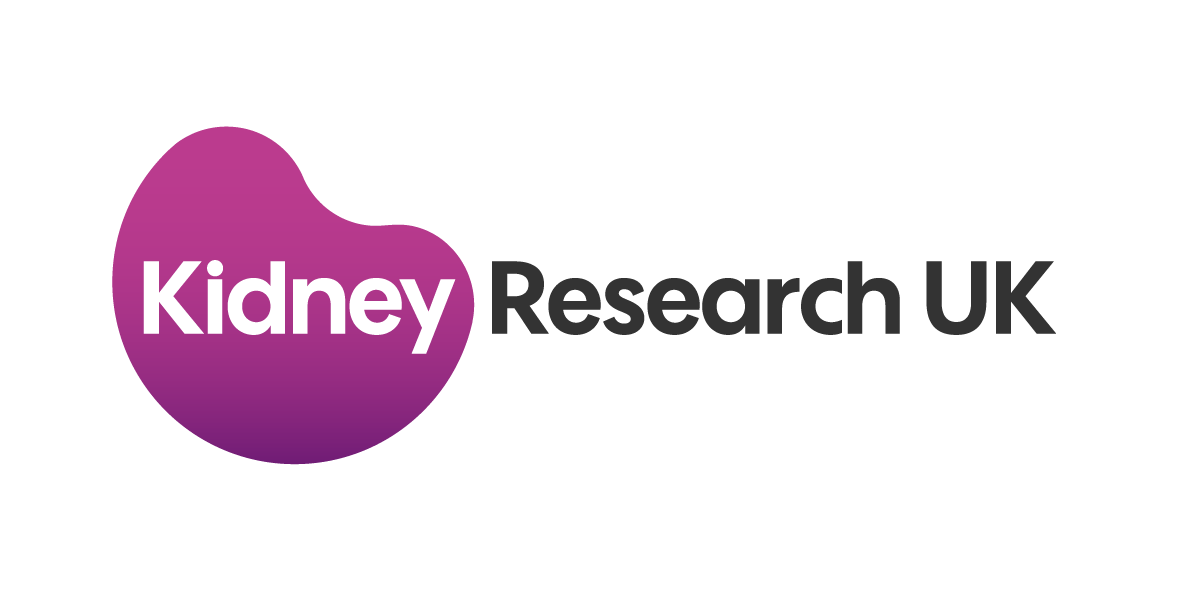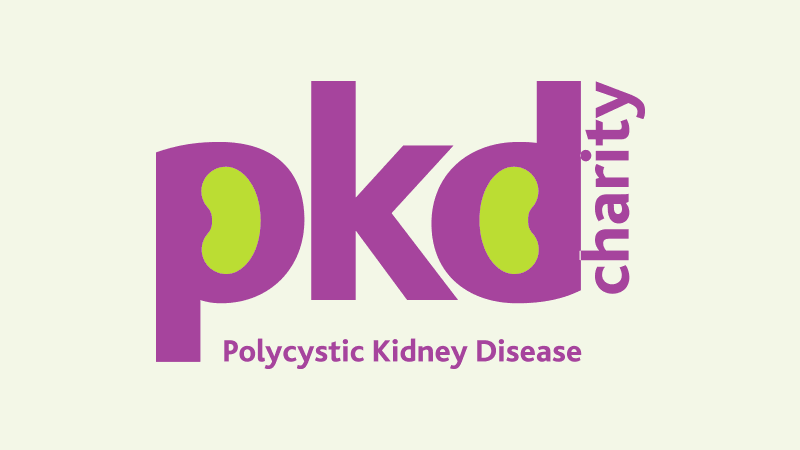
PKD Charity & Kidney Research UK research partnership

PKD Charity & Kidney Research UK research partnership
PKD Charity (PKDC) and Kidney Research UK have launched a joint partnership to progress research in polycystic kidney disease (PKD).
PKD is a genetic condition where several cysts form and grow on various organs in the body, but mainly the kidneys. Affecting over 12 million people around the world and up to 70,000 adults and children in the UK, PKD is the most common genetic kidney disease and the fourth leading cause of kidney failure. There is currently no cure.
Our vision is to improve the health and quality of life of people affected by PKD. Together, we want to significantly improve PKD patient outcomes over the next ten years, through a joint research programme.
New PKD treatments are needed now, for people like Mae

Maegan Smith (Mae) knows only too well the impact PKD can have. Mae, her dad Wayne and sister Stephanie have autosomal dominant PKD. Wayne lost his own father to kidney disease when he was nine years old. When Wayne’s own kidneys failed, he received gruelling dialysis three times a week for two years – until he recently received a kidney transplant from an anonymous living donor. Mae and Stephanie, both in their twenties, go to hospital regularly to have their kidney function checked.
Mae explains: “Most days I don’t think about my kidney disease because I have virtually no symptoms. But some days my mind wanders to my future and the reality hits me smack in the face like a truck. I’m hopeful that before our kidneys fail, new treatments will be available to control our condition. My biggest hope is that if we have our own children one day, they won’t have to live with the same fear of kidney disease that my family has for generations.”
Research is vital to give the family hope
Kidney research is critically underfunded - in the UK, less than 1% of all health research funding goes to kidney research, and a fraction of that amount goes towards PKD research specifically.
Kidney Research UK and PKD Charity want to address this and are working together to raise awareness and funds for their new joint research programme.
The two charities are perfectly placed for this work. Kidney Research UK is the largest charity dedicated to research into kidney disease in the UK – it funds work across the whole research pipeline, from better understanding the disease, through to new ways to prevent it. PKD Charity, as the voice of people with PKD, will help to design research into PKD, help to identify research priorities, provide stewardship, evaluate research progress and help disseminate information to patients.
By working together, we plan to build capacity and capability in PKD research by awarding grants to researchers for projects, studentships, or fellowships. We will bring together our research networks and share governance and programme management. We will make PKD research a priority that benefit patients with the condition. We aim to:
- Increase our understanding of current and new biological pathways, develop new models and biomarkers to study the disease, and identify new ways to treat it
- Explore the potential around genetics and cell therapies, genomics and use of data resources including the UK Rare Renal Registry RaDaR
- Move the evidence we gather through to the clinic, as it develops over the coming years
- Understand complications better, including pain, and develop new approaches towards treatments

Tess Harris, CEO of the PKD Charity, said: "I am very excited by this collaboration, which is the result of discussions over several years between our two charities. I inherited ADPKD, along with my three siblings, from my father. I have witnessed the premature death of my father and a sister and have recently had a kidney transplant following a period on dialysis. I have an affected niece and nephew.
Over my 15 years with the PKDC, as a trustee and now CEO, I have had daily contact with PKD patients and family members. I have heard their often tragic and painful stories, their battles with the stress of diagnosis and the prospect of an inevitable future blighted by kidney failure or massive cystic livers."
She continues: “Research is critical to improving their lives. As a small charity, we've been able to fund a few important projects at early research stages, including a biobank of kidney tissue donated by PKD patients and families. Kidney Research UK has been a significant funder of PKD research over 30 years. Yet, the amount spent on PKD research is miniscule compared with amounts spent on cancer, whilst the burden and cost of healthcare for PKD patients and the social burden and costs on their families is disproportionately high. Coming together with Kidney Research UK means we can make research happen much faster.”

Sandra Currie, CEO of Kidney Research UK, said: “We are delighted to be launching our partnership with PKD Charity. The coronavirus pandemic has delayed our launch plans by around six months, and it has certainly challenged our plans to combine forces to raise the money we need. But the pandemic has highlighted the need and urgency for this research, because people living with PKD are more at risk of COVID-19. Now, we are even more determined to invest in more research into this significant area of kidney disease.”
Mae comments: “This joint research programme is a huge step forward for people like me living with PKD – it will hopefully drive some incredible research into this condition forward and give hope to so many. Living with this genetic condition is a huge burden with a turbulent future ahead. Having been part of the discussions from the beginning, I can see passion and excitement from both Kidney Research UK and PKD Charity, and I really hope the research will find a breakthrough that changes the future for people living with PKD and our children.”

About Kidney Research UK
As the largest kidney research charity in the UK, nothing is going to stop us in our urgent mission to end kidney disease. We’re here to be heard, to make a difference, to change the future. This is a disease that ruins and destroys lives. It must be stopped.
Over the past 60 years, our research has made an impact. But kidney failure is rising, as are the factors contributing to it, such as diabetes and obesity. Today, we are more essential than ever.
Kidney disease affects three million people in the UK, treatments can be gruelling and currently there is no cure. Only research will end this and nobody can do it but us.

About the PKD Charity
Formed in 2000 by a PKD patient and a kidney doctor, the PKD Charity supports those affected by PKD, their families and carers. We raise awareness and fund research. Our support services blend educational events held around the UK or on web platforms with personalised and peer support – online, face-to-face and by phone.
We fund the PKD Biobank of donated tissue at the UCL Centre for Nephrology Royal Free – which has provided over 2,500 samples and methods to over 90 projects in the UK – and have supported the development of the UK Rare Renal Registry RaDaR.
Our patient advocacy efforts have contributed to global guidelines and consensus publications which have helped improved the care of PKD children and adults worldwide.
About PKD
There are two major forms of PKD:
- ADPKD - autosomal dominant polycystic kidney disease
- ARPKD - autosomal recessive polycystic kidney disease
ADPKD is the most common form of PKD; if someone has ADPKD, there is a 1 in 2 risk of passing it on to any children, meaning that many families have multiple generations of affected members. People with ADPKD can suffer throughout their lives from childhood. Two in three will experience hard-to-treat, disabling chronic pain and periodic acute pain. Nearly half of those with ADPKD will have kidney failure caused by massive cystic growth before they are 60 - requiring life-saving dialysis or a transplant. In the UK, around 1 in 10 people with a kidney transplant or on dialysis has ADPKD. Some adults will require a liver transplant and others will be at risk of devastating, life-threatening brain aneurysms. High blood pressure (hypertension) affects nearly everyone with ADPKD from an early age, with an associated increased risk of cardiovascular disease. There is only one licensed disease-modifying drug for ADPKD, which is not suitable for everyone.
ARPKD is a rare and severe form of PKD, affecting one in every 20,000 children born in the UK. Sadly, about one baby in three with ARPKD dies from underdeveloped lungs, either during pregnancy or in the first four weeks after birth. Some children will have kidney failure in the first year of life and will need life-saving dialysis until they are able to receive a kidney transplant. A few children will also need a liver transplant owing to a complication called congenital hepatic fibrosis (CHF). Children with ARPKD commonly have very high blood pressure and impaired growth. ARPKD is usually considered a childhood disease; however, improved care means that many now live to adulthood, when they typically experience complications of CHF as well as kidney impairment. ARPKD currently has no licensed therapies.
Donate today to support our ambitious research partnership.
